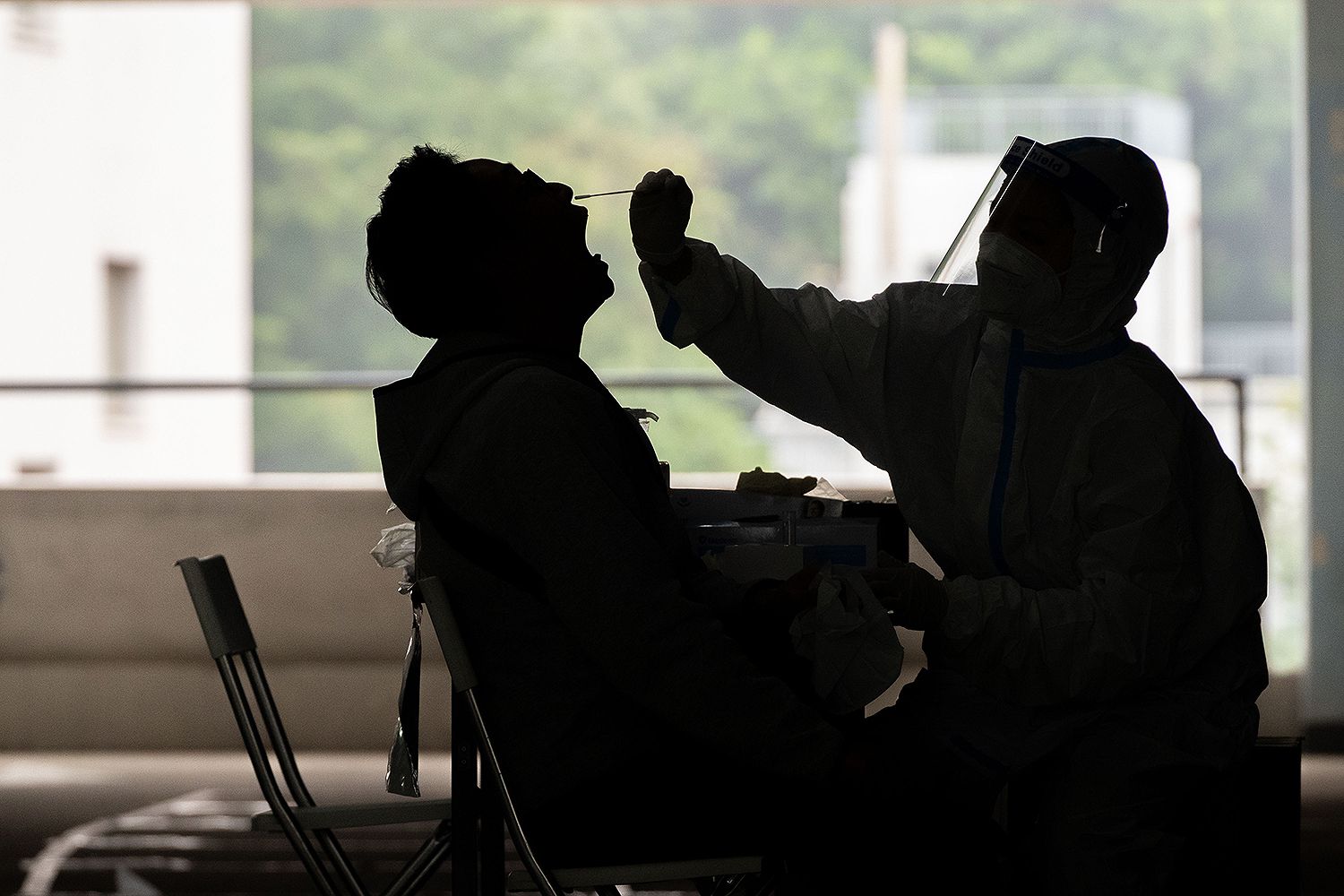Faster-Spreading U.K. COVID Strain Is Moving Rapidly Through the U.S., Study Finds


The faster-spreading COVID strain first found in the U.K. is now moving rapidly through the U.S., a new study found, and will be the dominant strain "in a matter of weeks."
Cases with the new strain are doubling every week and a half, mimicking its spread in other countries. The variant, named B.1.1.7, is believed to be about 35 to 45% more transmissible than other strains, causing concern that it will drive infections and hospitalizations higher.
"Our study shows that the U.S. is on a similar trajectory as other countries where B.1.1.7 rapidly became the dominant SARS-CoV-2 variant, requiring immediate and decisive action to minimize covid-19 morbidity and mortality," the authors wrote. The study is currently in preprint and has not yet been peer-reviewed, but is a collaboration of over four dozen researchers from multiple universities and institutions.
The research also confirms what the Centers for Disease Control said last month, that the B.1.1.7 variant will likely be the dominant strain by March.
"It is here, it's got its hooks deep into this country, and it's on its way to very quickly becoming the dominant lineage," Dr. Michael Worobey, an evolutionary biologist at the University of Arizona and a co-author of the new paper told the Washington Post.
The B.1.1.7 variant was first identified in the U.S. at the end of December, and since then cases have grown to 690 across 33 states, according to the CDC. However, the federal health agency said the count "does not represent the total number," as not all testing facilities in the U.S., which then report to the CDC, track the different strains.
The study indicates that the true spread is far higher. Community spread in Florida, California and Georgia have been particularly high, researchers found, with cases in Florida with the strain increasing from slightly below 5% of all COVID-19 infections to 10% in just one week.
The CDC has said that the methods for protecting against the new strain are the same as others — wearing a mask (and doubling up on them, if possible), social distancing and only interacting with people in your household. Vaccinations will also make a huge difference in fighting the strain. The Biden administration has rapidly ramped up the U.S. vaccination rate and around 1.4 million people are getting a dose each day.
"We should vaccinate as fast as we can," James Lu, a co-author of the new report and president and co-founder of Helix, a genomics company that works with the CDC and provided much of the data used in the research, told the Post.
Both Pfizer and Moderna have said that their vaccines are effective against the B.1.1.7 strain, and that they can manufacture a booster shot if needed.
The study does not cover the two other concerning strains now in the U.S. — one first found in Brazil, and another identified in South Africa. The South Africa variant is particularly troubling as the two vaccines did not produce as strong of an immune response against the strain. Dr. Anthony Fauci, the country's top infectious disease expert and President Joe Biden's chief medical advisor, urged people to get vaccinated to stop the strains.
"You need to get vaccinated when it becomes available as quickly and as expeditiously as possible throughout the country," Fauci said last week. "And the reason for that is … viruses cannot mutate if they don't replicate. And if you stop their replication by vaccinating widely and not giving the virus an open playing field to continue to respond to the pressures that you put on it, you will not get mutations."
Source: Read Full Article